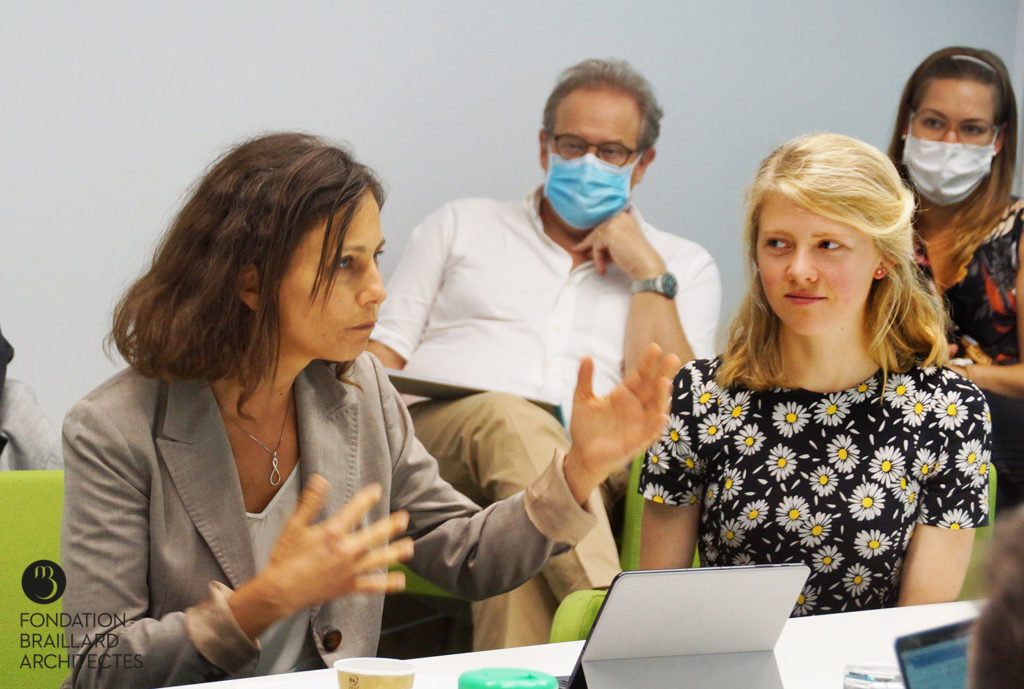The space of mobile sobriety
Considering mobility as both spatial and social, thanks to rapid changes in the face of the climate emergency, it must be reviewed in many ways. It should above all be considered as one of the methods of reverse planning to reduce the tonnes of CO2 from 10 to 1 produced on average per person in Switzerland.
Such an enterprise requires understanding the overlapping scales of community and individual in order to produce new patterns regarding the economy and the production/consumption of goods and services. For this, long-term thinking also using new technologies is essential, which can have a positive effect on the reconsideration of GDP, jobs and ultimately well-being.
For the Marronniers, an approach based on individual life scenarios can give substance to concrete solutions and to anticipating social problems that the ecological transition may cause.
By combining the lives of four types of individuals, the Marronniers district is designed on the basis of its pedestrian proximity to essential amenities and public transport, reconciling private life, community/public and professional life, and a healthy environment.
The team finally wants to reconcile the limits that environmental protection imposes with the possibility of freedom and diversity for the individual and the community.

Team
- Eliane SCHWANDER-GONÇALVES
Architect
EPFL-graduated architect, I am passionate about the interaction between humans and their living space in the broad sense. In my last job, I was an architect, project manager and client consultant. The initial phases of a project are the ones that fascinate me the most: listening, analysing and if necessary questioning the clients’ requests in order to define their needs and establish a relevant project strategy. Since September, I have left architecture behind and set off on a new path. I will be a project manager at TA-Swiss, a foundation for the evaluation of technological choices. - Prisca VYTHELINGUM
Economist, general secretary of the ATE, Friborg section
Trained economist, I work as general secretary at the transport and environment association in Friborg. My assets for our mission are a good knowledge of mobility issues and land use planning procedures, extensive experience in project management and mediation skills. I want to help invent a sober mobility solution that fits into a development that encourages the ecological transition for all of its users. - Pauline HOSOTTE
Civil Engineer, EPFL student
Engineer at the Transitec mobility consulting engineering firm and doctoral student at the urban sociology laboratory of the EPFL, the field of mobility as a vector of activities in different spheres of life fascinates me. My research on traffic evaporation combines practice and research to better understand this phenomenon. Against a backdrop where space constraints and ecological awareness meet, it focuses on the individual in the society. - Nathalie FANZY
Head of events and sustainability expertise group at the Jean Monnet Foundation, EPFL doctoral student
In charge of events and of the sustainability expertise group at the Jean Monnet Foundation, I could work on the transport issue within Europe through comparative studies and most recently on smart cities for a next 5-year cycle. A few months ago, I joined the EDAR doctoral school of EPFL to develop my thesis in urban sociology which focuses on inequalities of gender, age and small households (1-2 people) in the smart and sustainable cities of the future. This thesis is part of a comparative study of Copenhagen, Barcelona and Zurich.

